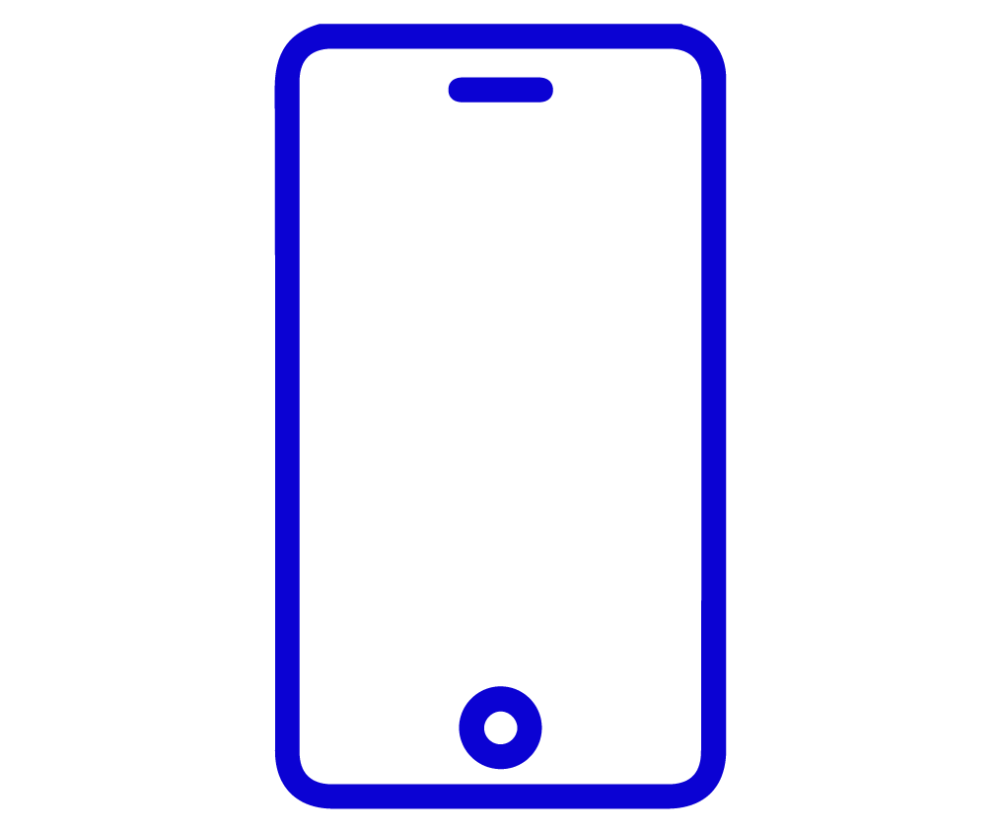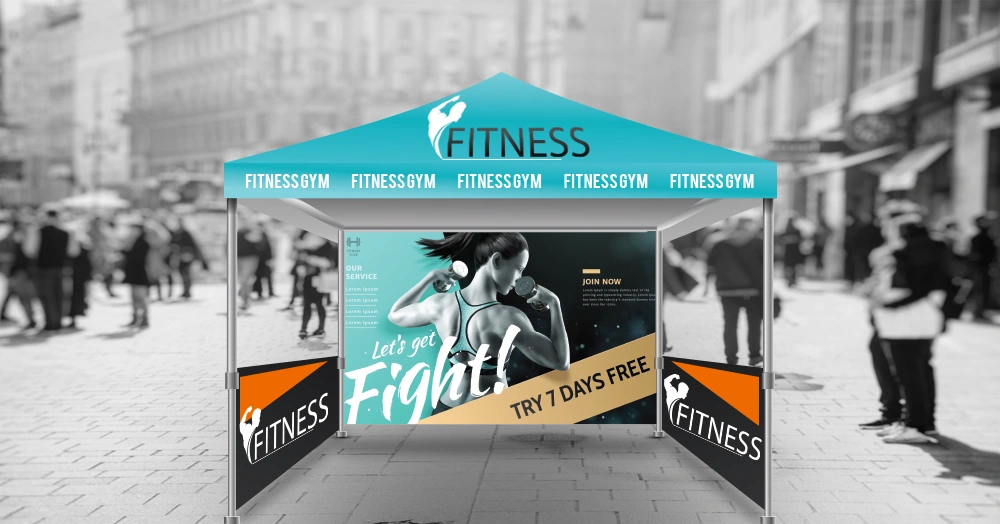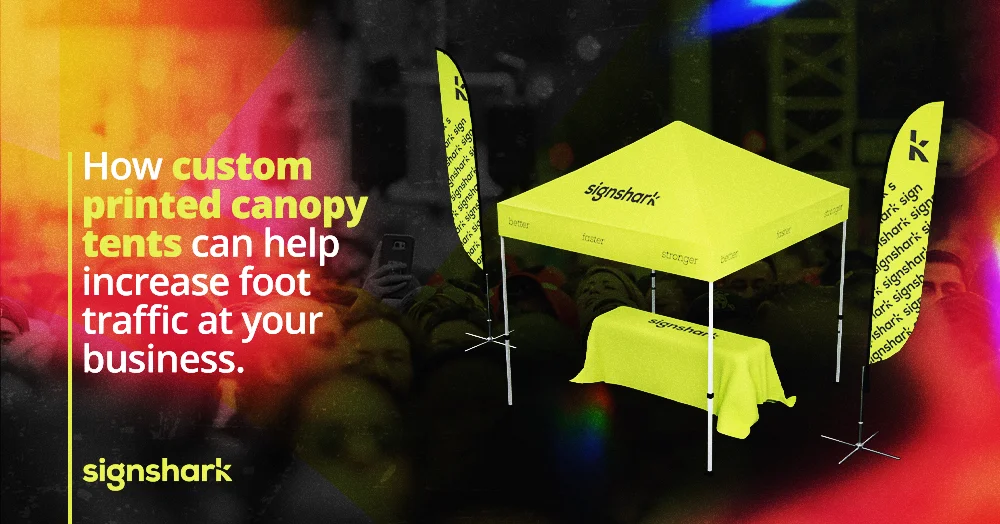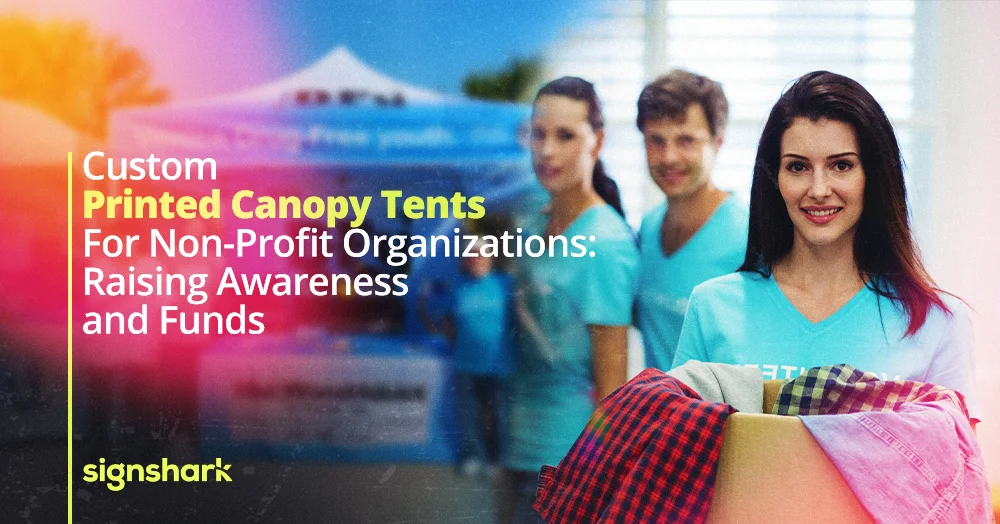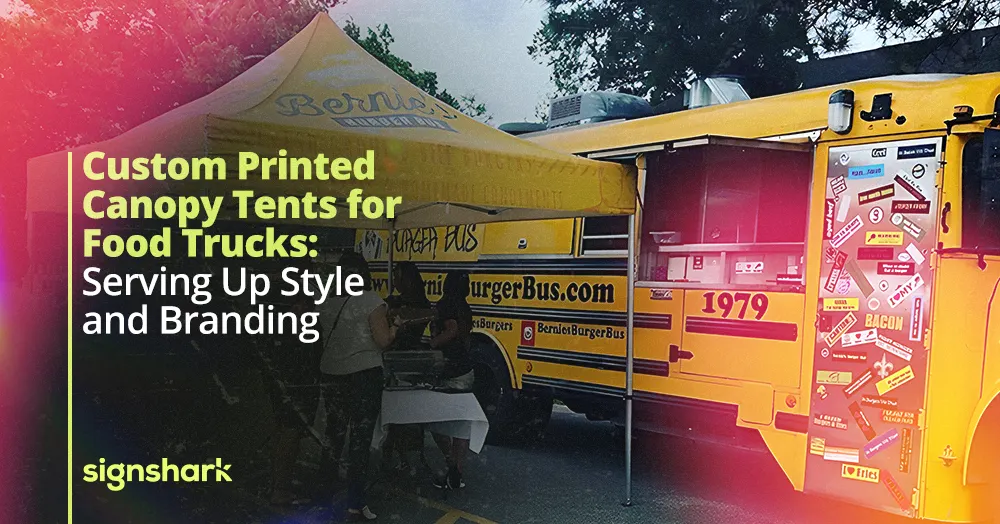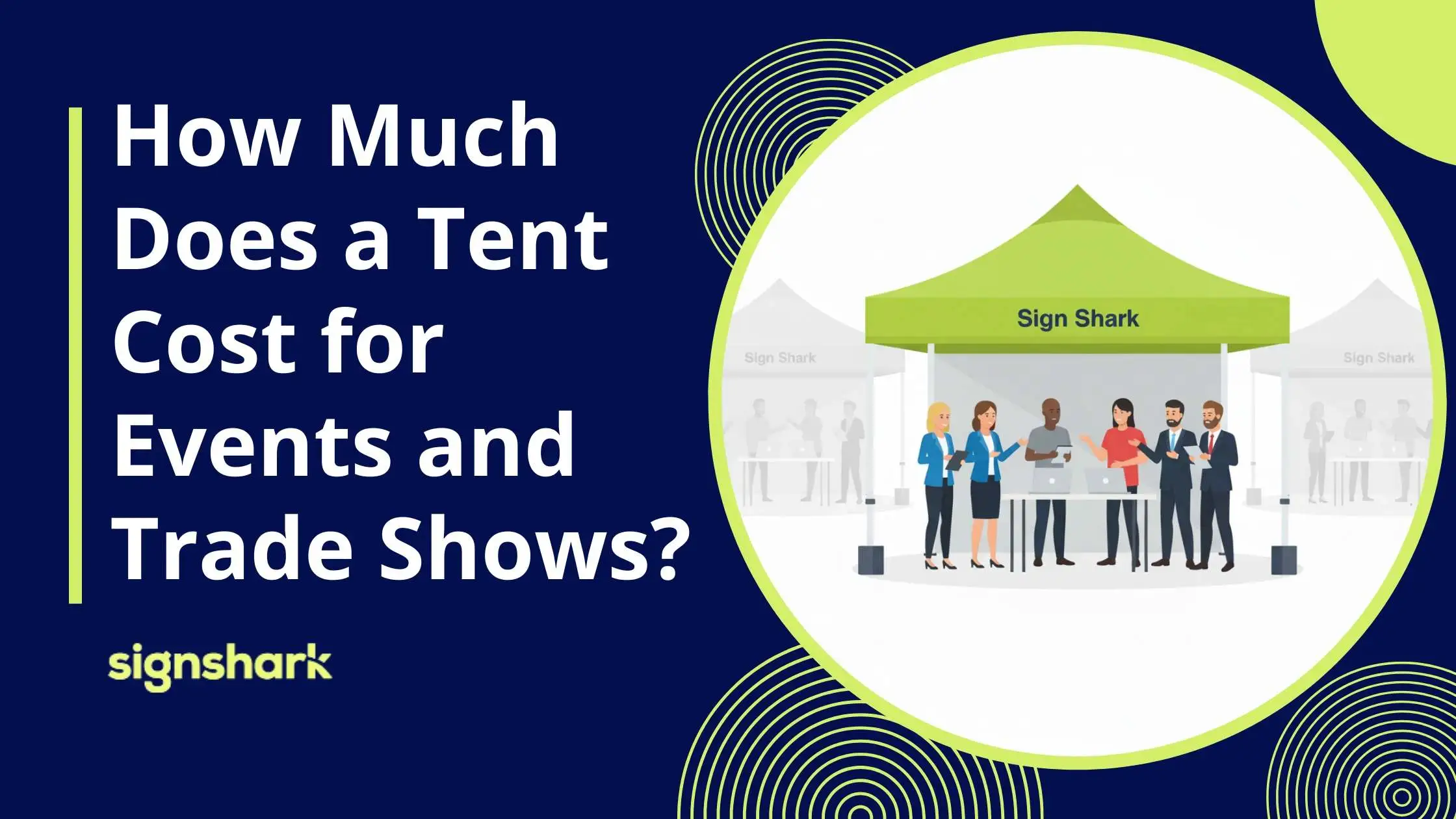
When planning for a corporate event or trade show booth, selecting the right custom canopy tent is one of your most important decisions. A high-quality frame tent not only gives your booth a polished and professional look but also provides protection from rain and wind. Whether you're hosting a small outdoor gathering or a large exhibition, understanding the cost of tents helps you plan your budget effectively and select the ideal canopy for your event.
In this article, we'll break down how much tents cost for events and trade shows. You’ll learn how prices change based on tent size, material, and added features like sidewalls or flooring. We'll also help you determine whether buying or renting is the better option for you, and show you the best places to find quality custom canopy tents.
How Much do Canopy Tents Cost?
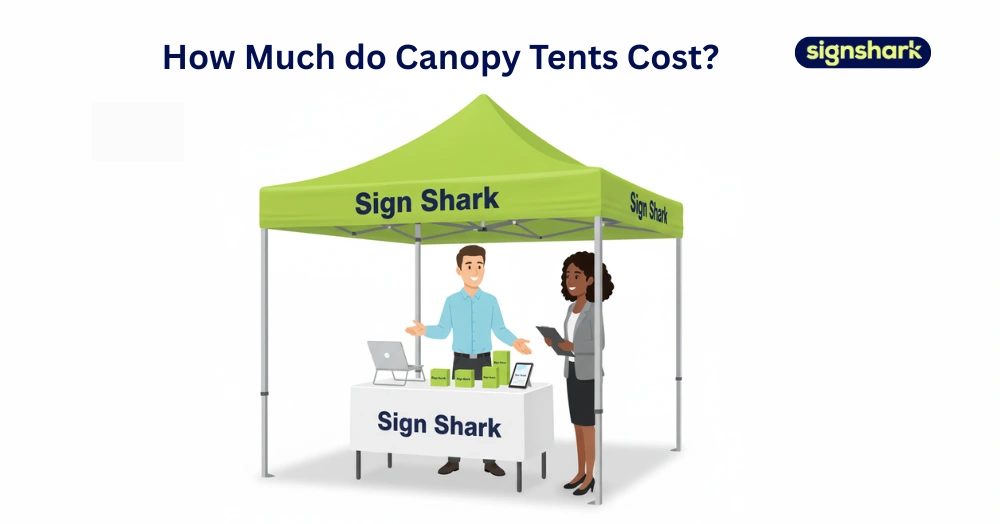
The cost of a pop-up canopy tent varies based on various cost factors like size, frame type, material, and additional features such as sidewalls, flooring, and branding. On average, a basic 10x10 custom canopy tent starts at $540 with a custom graphic and a heavy-duty frame and can go up to $1800 or more for larger sizes and premium models with added features. Here are some of the factors that influence the cost of a canopy tent:
Canopy Tent Size
The size of a canopy tent has a big impact on its cost. Larger tents require more materials and a stronger frame, which increases the price. For example, a 10x10 canopy tent is more affordable, while a canopy tent 10x20 or 20x20 can cost significantly more due to extra fabric, support, and setup requirements.
Canopy Tent Frame
The type of frame greatly affects the cost of a canopy tent. Aluminum frames are lighter and cheaper, making them good for smaller tents. Steel frames cost more but are heavier and more durable, ideal for larger tents and harsh weather. Premium frames offer better durability and weather resistance, but are expensive than a normal frame.
Canopy Tent Fabric
The fabric of a canopy tent plays a key role in both its cost and durability. Polyester is lightweight and budget-friendly, whereas heavier materials like vinyl or PVC offer better weather resistance and a longer lifespan, but are expensive. High-quality fabrics with UV protection and waterproof coatings are the most expensive, but they offer better protection and require less maintenance.
Tents With Sidewalls
Adding sidewalls to your canopy tent increases the cost but offers many benefits. Sidewalls provide extra protection from wind and rain, give you more privacy, and create an enclosed space that looks more professional. Tents with full or partial side walls are more expensive than open tents because they require additional material and installation time.
Additional Canopy Features
Other add-ons, such as flooring, string lights, custom printing, or weighted anchors, also increase your tent's price. Flooring protects your equipment and keeps the space clean, while lighting improves visibility and gives a professional look. Heaters keep guests warm in cool weather. The more extras you include, the higher the price, so pick features that suit your event and budget.
Should You Buy or Rent a Canopy for Your Next Event?
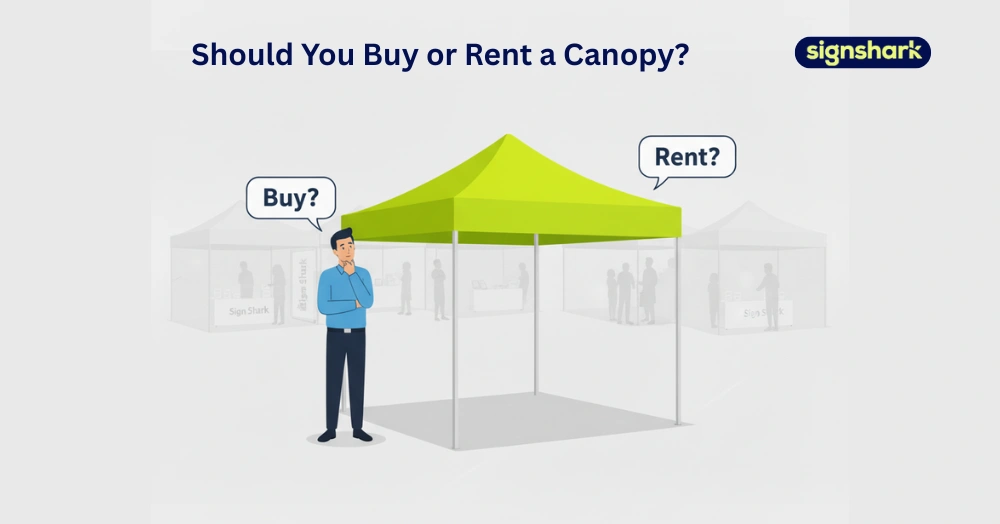
Once you know the costs, you need to decide whether buying or renting is right for you. The choice depends on several factors, including how often you'll host events, your budget, and whether you want a custom design. For a one-time event, renting a canopy is a good option since rental costs are lower and you can choose a tent based on your rental duration.
However, if you frequently host events, require full customization, and need a tent that stands out and impresses visitors, then purchasing your own tent is the better option. Here’s a comparison table highlighting the key differences between buying and renting to help you decide.
|
Factor |
Buying |
Renting |
|
Cost |
Higher upfront cost, but more cost-effective in the long run if used often. |
Lower rental costs, best fit for short-term or one-time use. |
|
Customization |
Fully customized control over colors, graphics, and logo. |
Limited or no customization options available. |
|
Durability |
Long-lasting investment if maintained properly. |
Temporary use; may not always be in perfect condition. |
|
Brand Visibility |
Offers a professional and branded look that attracts visitors. |
Basic look with limited branding opportunities. |
|
Storage & Maintenance |
Requires space for storage and regular maintenance. |
No need to worry about storage or upkeep. |
Where to Buy Custom Canopy Tents?
Custom canopy tents are a great way to make your brand stand out at trade shows, festivals, and corporate events. They offer flexibility, easy setup, and strong visual impact while protecting your space from sun and rain. With the right size, frame, and design, a canopy tent can turn any outdoor area into a professional, eye-catching display.
If you’re looking to buy a high-quality and affordable custom canopy tent, Sign Shark is the perfect place. We offer fully customizable, durable tents that help your brand stand out at trade shows, festivals, and outdoor events. Each tent is made from premium, waterproof, and scratch-resistant fabric, backed by a one-year warranty. Along with this, you get free custom design assistance and free delivery, making it easy to get a tent that looks great and lasts for years.
FAQs on How Much do Tents Cost
Want to know more about tent pricing for your next event? Here are answers to questions you might have about tent costs.
How Much Does a Custom Tent Cost on Average?
On average, a custom canopy tent costs between $500 and $1,500, depending on its size, frame type, and design. Smaller basic tents are less expensive, whereas larger or fully customized tents with added features are more costly.
Is it Cheaper to Rent a Rent than Buy One?
Yes, renting a tent is cheaper at first, but buying one saves more money if you use it frequently. A custom canopy tent also gives you a unique design that rental tents usually don’t offer.
How Long do Tents Usually Last?
A well-made canopy tent can last 5 to 10 years with proper care. Durable materials, sturdy frames, and regular maintenance help your tent stay strong, look good, and perform well for many events over time.



